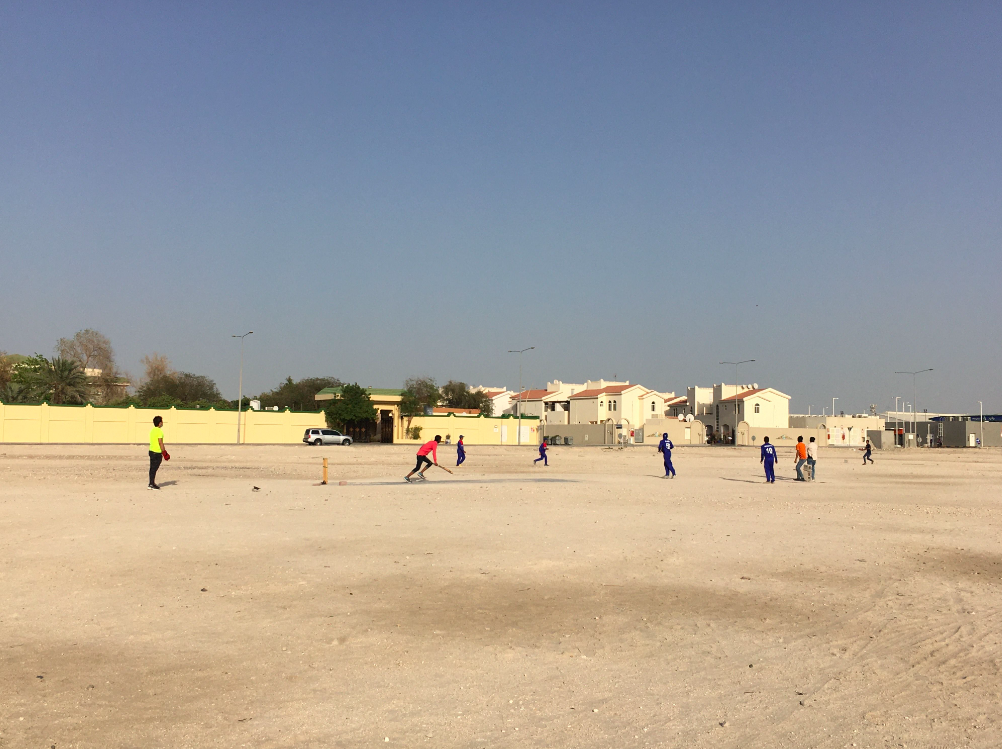Mohamed works as a security guard at a World Cup stadium. He has not been able to sleep for days – the stress and the anxiety getting to him. He wants to return to Dhaka as soon as possible.
By Sam Kunti
They miss home, they are tired from work and yet they find the strength and joy to play a game of 8-over cricket under the searing morning sun after their night shift has ended. This has all the trappings of a proper game: the tension, the variation in bowling, the chase, the fielders shouting instructions – and yet it’s obviously not. Nothing is quite normal at a labour camp outside Doha off the highway to Saudi Arabia. Migrant workers here face abuse, struggle mentally and drink to forget their problems.
The Indian and Bangladeshi men, all security guards, play a pick-up game, at an expanse among tower blocks and prefab constructions. This is not quite the desert, but instead the dustfield stretches and fills the horizon. The cricket field is scrubby, with strewn plastic bottles and other litter. The wicket is a concrete one, litter forms the boundary. At the crease, Kumar, on 46, is accelerating, smashing a brilliant six. His team is chasing 89 and in firm control of the match.

The match is as intense as one can expect and when the winning runs arrive, the joy of th...



